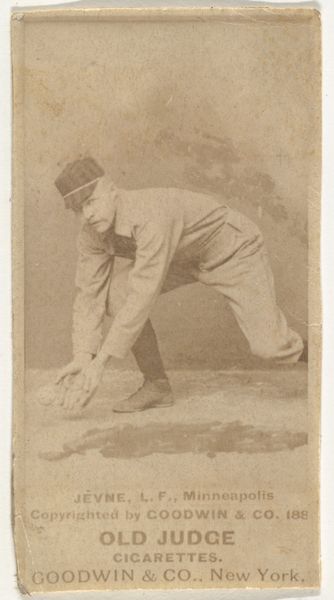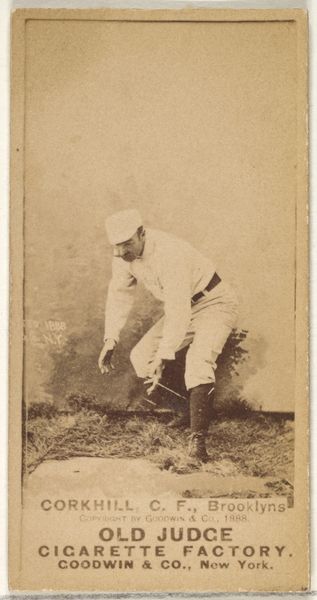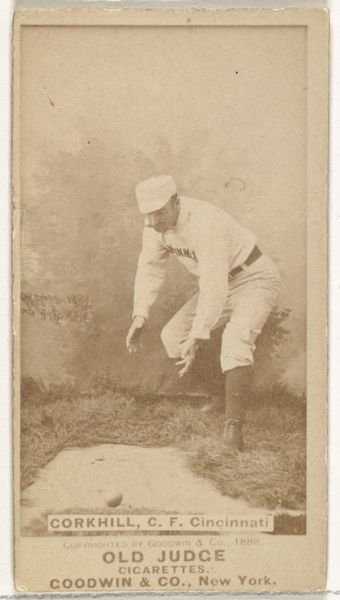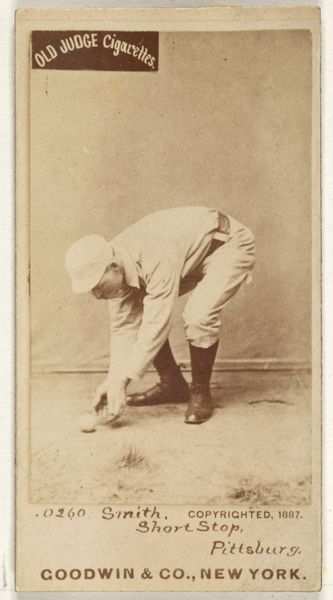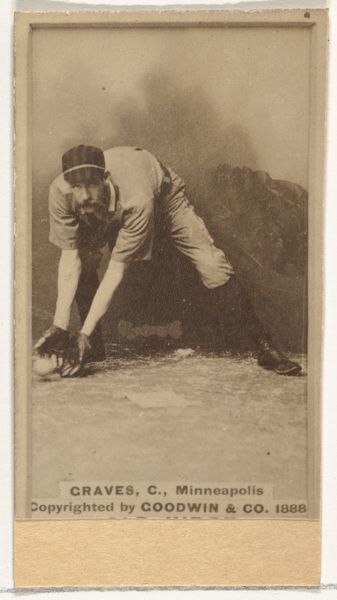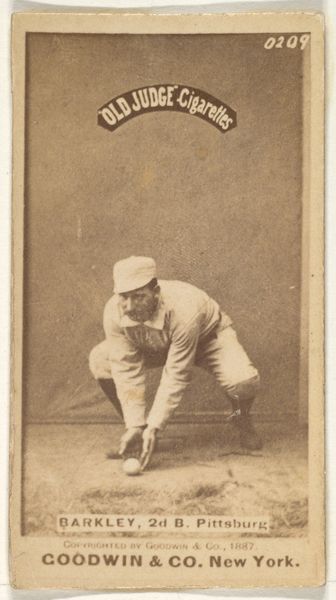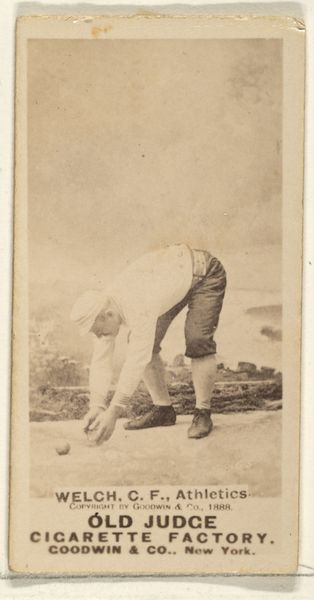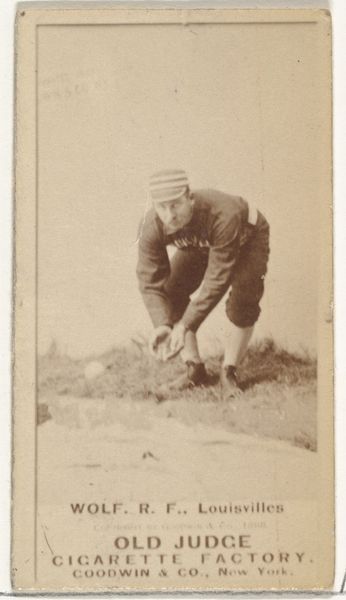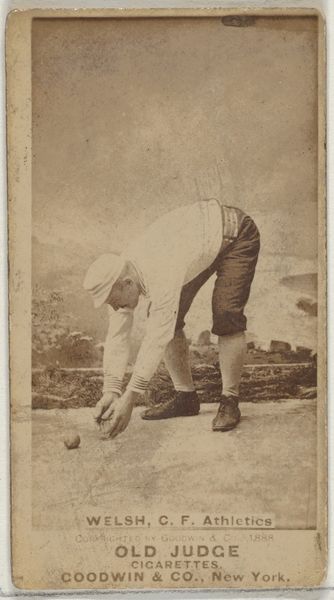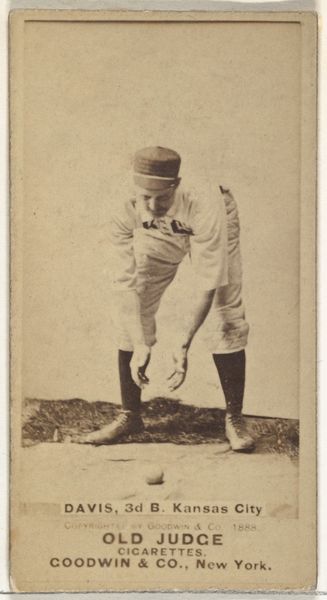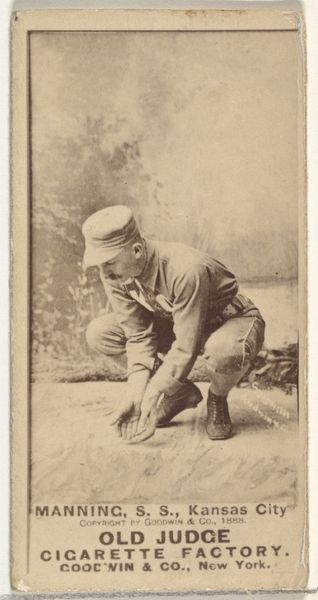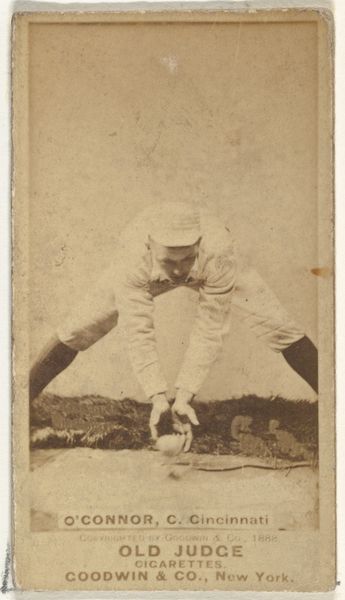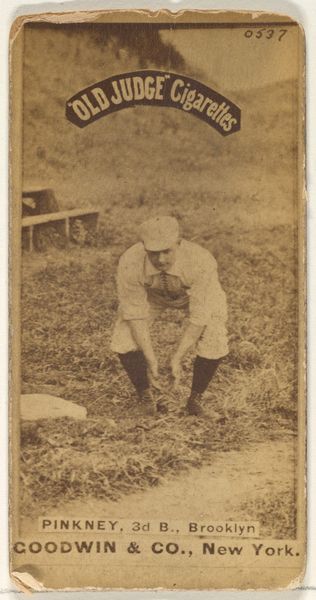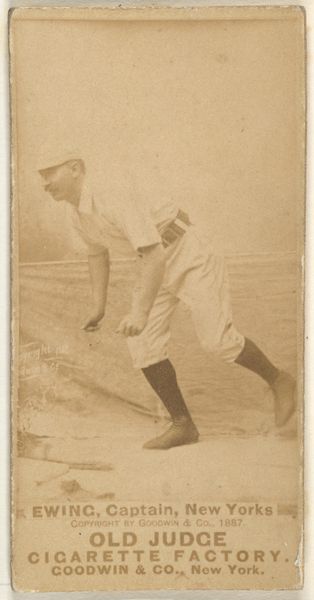
Francis John "Frank" Fennelly, Shortstop, Cincinnati, from the Old Judge series (N172) for Old Judge Cigarettes 1888
0:00
0:00
drawing, print, photography
#
portrait
#
drawing
# print
#
baseball
#
figuration
#
photography
#
men
#
athlete
#
realism
Dimensions: sheet: 2 11/16 x 1 3/8 in. (6.9 x 3.5 cm)
Copyright: Public Domain
Editor: Here we have "Francis John 'Frank' Fennelly, Shortstop, Cincinnati," a baseball card from the "Old Judge" series, made around 1888. It's a photographic print, quite sepia-toned, and something about his posture makes me feel a sense of grounded determination. What catches your eye when you look at this, and what stories might it tell us? Curator: What strikes me is how this seemingly simple baseball card operates as a cultural artifact, reflecting late 19th-century ideologies of masculinity and athleticism. Consider the context: industrialized America, anxieties about physical fitness, and the rise of baseball as a national pastime. These cards weren't just documenting players; they were constructing an image of the ideal American man, often white, disciplined, and embodying physical prowess. How does the promotional aspect – associating this image with “Old Judge Cigarettes” – further shape the narrative being sold here? Editor: That's a great point! The cigarette tie-in definitely complicates things. So it's not just about athleticism; it’s also about linking that image to a product, perhaps to associate it with "manly" leisure. Do you think there are any racial dimensions at play here? Curator: Absolutely. These early baseball leagues were often segregated, reflecting the broader racial hierarchies of the time. While Fennelly himself was white, the very visibility and celebration of white athletes served to reinforce the exclusion and marginalization of Black players. It's crucial to consider who is included and who is conspicuously absent from these historical representations. Can we also unpack what’s happening with the company's decision to promote a certain kind of American identity through consumerism and leisure? Editor: I never considered the racial aspect of such an antiquated artifact. So it's about more than just baseball; it's a snapshot of societal values and power dynamics being marketed. Curator: Precisely. By examining these seemingly innocuous images through a critical lens, we uncover the complex web of social, political, and economic forces that shaped the historical landscape, reminding us to always ask: Whose stories are being told, and whose are being erased? Editor: Thanks so much. This changed my whole view of what a baseball card represents!
Comments
No comments
Be the first to comment and join the conversation on the ultimate creative platform.
